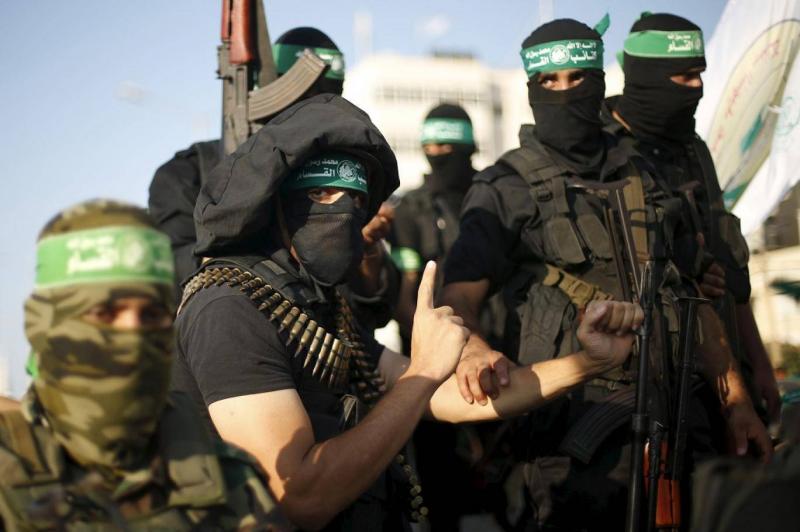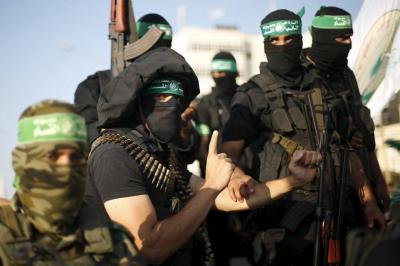Amid the ongoing war for nearly eight months, Hamas and its leaders have become "generally unpopular" in the Gaza Strip, with more residents now "willing to openly criticize the movement without fear of retaliation." Today, the people of Gaza are preparing to celebrate a somber Eid al-Adha, marked by the absence of sacrifices, clean water, and all the essentials of life, all against the backdrop of a deadly day for the Israeli army, which lost eight of its soldiers.
In interviews with around twelve residents of Gaza conducted by the "New York Times" in recent months, several attributed the responsibility for the war and the resulting death and destruction to Hamas, even though they primarily blame Israel. While Hamas leaders and even the Israeli hostages were underground, Gazans remained above ground, unprotected from the bombs falling above them daily, a common complaint voiced by critics of Hamas in Gaza, according to the "New York Times."
One resident, Raed Al-Kilani, 47, stated that Hamas "always acts in its own interests." Al-Kilani, who previously worked as a civil servant in the former Palestinian Authority government in Gaza before Hamas seized control in 2007, added: "The war began on October 7, and Hamas wants to end it on its own terms, but time is passing without any possible hope for an end to the war." He continued, saying that Hamas is still seeking its share of power and does not know how to come down from the tree it has climbed.
A culture of fear permeates, as some residents who spoke with the newspaper noted that "Hamas knew it would start a devastating war with Israel that would inflict heavy losses on civilians, but it did not provide any food, water, or shelter to help people survive." In contrast, Hamas leaders claimed they "wanted to ignite a permanent state of war with Israel on all fronts as a way to revive the Palestinian cause, knowing that the Israeli response would be significant."
During the war, hints of opposition to Hamas emerged, even as Gazans mourned loved ones killed in Israeli attacks. Some waited until they left the territory to condemn the Palestinian movement, having been hesitant at times for fear that the group might survive the war and continue to rule Gaza, according to the "New York Times."
The new generation of Palestinian youth has lost faith in the prospects for peace and coexistence with Israel, leading them to increasingly believe that armed struggle is the only way to secure their rights. In March, the well-known photojournalist from Gaza, Moataz Azayza, stirred controversy on social media when he indirectly criticized Hamas after leaving the territory, being one of the few young journalists who gained international recognition early in the war for documenting death and destruction on social media. He wrote, referring clearly to Hamas: "If the death and hunger of their people make no difference to them, then they do not need to make any difference to us. Cursed is anyone who traded in our blood, burned our hearts and homes, and destroyed our lives."
According to the "New York Times," measuring public opinion in Gaza has been difficult even before the war due to Hamas's long-standing control of the territory and "spreading a culture of fear through its repressive governance and carrying out retaliatory actions against critics."
Despite the increased difficulty of conducting surveys now, with most of Gaza's 2.2 million residents having been displaced multiple times due to the war, some recent polls show weak support for Hamas and its leaders in the territory. The Social and Economic Development Institute in the West Bank conducted a poll in March that revealed about three-quarters of respondents opposed Hamas leader Yehya Sinwar in Gaza, with a similar percentage opposing Ismail Haniyeh, the head of the movement's political bureau abroad.
The newspaper quoted the founder of the Social and Economic Development Institute, Obada Ishtayeh, as saying, "When you realize after 6 or 7 months that Gaza has been completely destroyed and your life as a Gazan has been completely ruined, that’s what drives people not to support Sinwar or Haniyeh." In contrast, Hamas spokesperson Bassem Naeem told the "New York Times" that popular support for Hamas in Gaza "is no less than 50 percent," including more than 100,000 Hamas members and their families.
He added, "Are there people in Gaza who blame Hamas? Of course, yes. And we are not saying that 100 percent of the population supports Hamas or that they are happy with what has happened." Some Gazans also mentioned that the war "has lasted longer than any previous conflict between Israel and an armed Palestinian faction in Gaza because Hamas seeks not only survival but to cling to power."
On Saturday, White House National Security Advisor Jake Sullivan stated that mediators from Qatar and Egypt intend to communicate with Hamas leaders soon to explore a possible path forward regarding the ceasefire proposal in Gaza put forth by U.S. President Joe Biden.
Hamas rejects any agreement for a ceasefire with Israel, demanding a complete end to the war, which Israel refuses, insisting it "will continue the war until Hamas's rule and military power in Gaza is eradicated." One resident of Gaza, who recently fled to Egypt with her family, said she "regularly hears from friends and family that they do not want the war to end until Hamas is defeated in Gaza." She added during her conversation with the newspaper that Hamas "prioritizes its own goals over the welfare of the Palestinians it claims to defend and represent." The woman, who requested anonymity for fear of potential retaliation if her criticism were made public, remarked: "They could have surrendered a long time ago and saved us all from this suffering."




